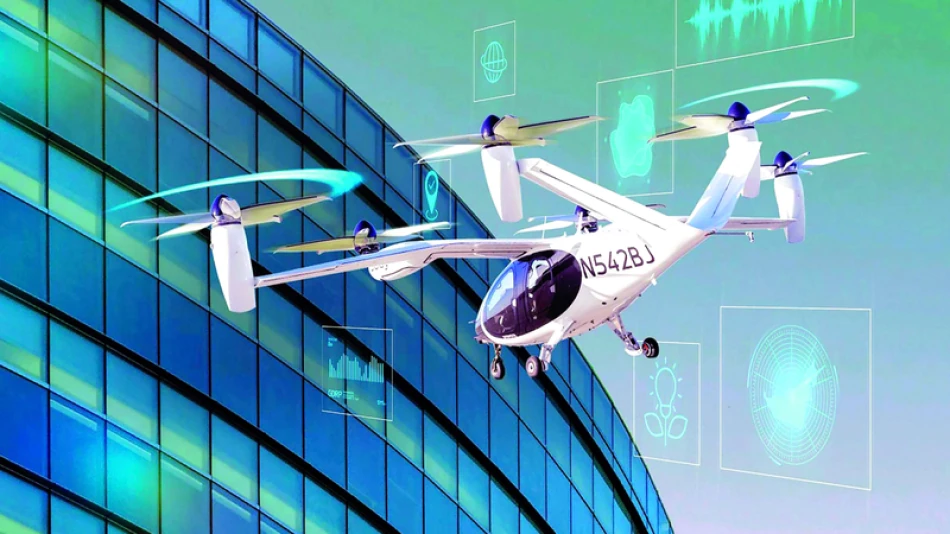
Dubai Launches Pioneering Air Taxi Service in Q2 2026
Dubai will become the first city in the world to launch commercial air taxi services when Joby aircraft start carrying passengers in the second quarter of 2026. The Dubai Roads and Transport Authority announced that four helicopter landing stations will connect key locations across the emirate, with zero-emission flights bookable through a new smart app.
The service will roll out in two phases. The first two stations will open near Dubai International Airport and in Marina, with Downtown and Palm Jumeirah stations following by the end of 2026. Khalid Al Awadhi, Director of Transportation Systems at Dubai's RTA, said the project is moving on schedule with public trial flights starting in late Q1 2026.
Each Joby aircraft will carry four passengers plus a pilot, offering what the RTA calls a quiet, comfortable flight experience. The booking system will work like existing ride-hailing apps, allowing passengers to reserve air taxis as easily as they would book a regular taxi or limousine service.
The pricing strategy aims to make air taxis accessible to more than just wealthy tourists. Al Awadhi confirmed that fares will be cheaper than current helicopter sightseeing tours, though specific rates haven't been announced yet. The goal is practical transportation that reduces road congestion, not just premium tourism flights.
Dubai signed agreements in early 2024 with multiple partners to make this happen. The deal includes the UAE's General Civil Aviation Authority, Dubai Civil Aviation Authority, British infrastructure company Skyports, and California-based Joby Aviation. This partnership creates the world's first urban air mobility network with vertical takeoff and landing capabilities.
The air taxi stations will integrate directly with Dubai's existing metro system and ground taxis. Each station will have waiting lounges, security services, and advanced charging facilities. The aircraft run entirely on electric power, producing no carbon emissions during flight.
For investors and transport companies worldwide, Dubai's move represents a significant test case. Urban air mobility has been promised for years, but regulatory hurdles and safety concerns have slowed progress. Dubai's streamlined approval process and willingness to be first could provide valuable data on passenger demand, operational costs, and integration challenges.
The RTA is also showcasing other autonomous transport projects at Gitex Global 2025. These include Dubai's Autonomous Mobility District, developed with Emaar and Al-Futtaim Group, which will test self-driving buses and taxis in Festival City and Dubai Creek Harbour. A dedicated testing lab in Dubai Silicon Oasis runs over 32 specialized tests on autonomous vehicles before they enter service.
But the air taxi launch matters most because it puts Dubai ahead of cities like Los Angeles, Singapore, and Paris that are still working through certification processes. If the service works as planned, it could influence how other major cities approach urban aviation and give Dubai's partners a significant head start in the emerging air mobility market.
Most Viewed News

 Sara Khaled
Sara Khaled






